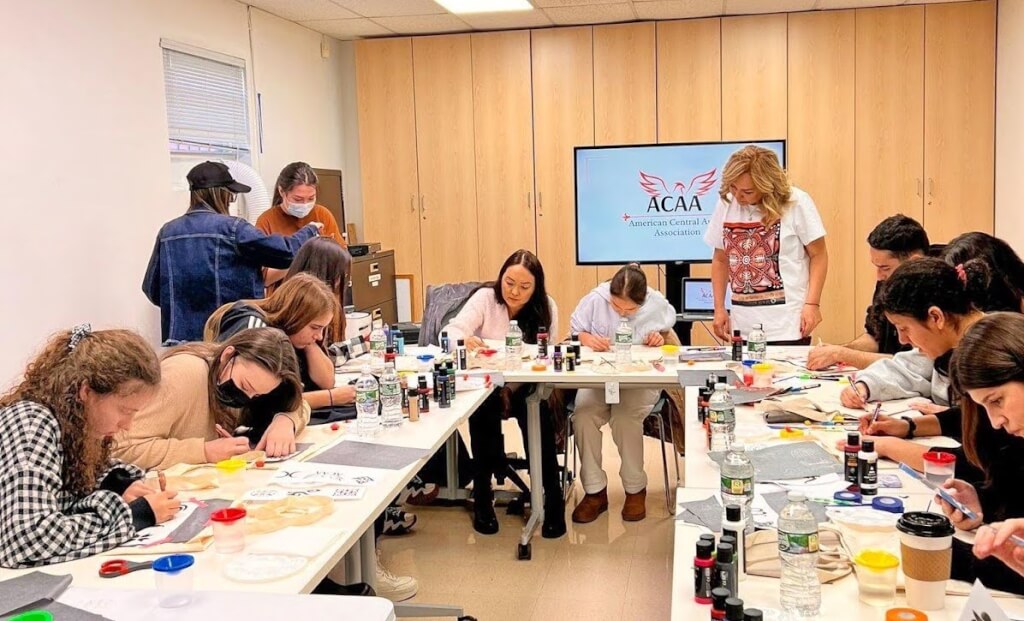How to Get Your Child to School Easily: Tips for New Yorkers
'19.08.2021'
Nurgul Sultanova-Chetin
The first day of school in New York is just around the corner. Students are preparing to return to class, and families must be prepared for school shopping this year to become a major expense. Consumer and Employee Protection Department (DCWP) has released new tips for parents on how to get your child to school hassle-free. They are designed to help families save money and teach their children to make smart financial decisions.

“As students prepare to return to face-to-face classes, families are expected to spend more on clothing, electronics and other supplies this year than ever before,” she said. Acting DCWP Commissioner Sandra Abeles.
“Shopping for school preparation can be a great financial stress for families. Therefore, it is important that parents do their homework before shopping to avoid wasting money. Saving money is especially important for many families now as we recover from the pandemic. With our advice, parents can make smarter financial decisions and protect themselves from unnecessary spending of hard-earned money. ”
-
Make a shopping list and budget
Help children make the right decision when choosing consumables. Get a list of materials from your teacher. Explain to the children how to budget based on how much they should spend and what they should buy. Whether you're shopping online or in a store, stick to a list and budget.
-
Compare prices
Use websites, smartphone apps, and social media to browse products, compare prices, and find sales and discounts. Do not enter your personal information to receive the coupon. Some scammers use the discount promise to steal your information.
-
Be sure to check the prices
Stores must list prices either on the product or on the sign that displays the product. It is illegal to charge more than the quoted price.
-
Beware of overpricing
It is illegal for businesses to charge inflated prices for goods or services necessary to health, safety, or well-being during a state of emergency declared in New York. Goods or services include disinfectants, soaps, cleaning products, diagnostic products and services, and medicines.
You can file a grievance complaint with DCWP. Visit the site nyc.gov/dcwp or call 311 and say “overpriced”. Be sure to include a receipt with your complaint.
-
Ask for a receipt and keep it
In New York, you are eligible to automatically receive a receipt for purchases over $ 20. A receipt for purchases between $ 5 and $ 20 is issued upon request. Protect your personal information. By law, a customer receipt must not contain the credit card expiration date or more than the last five digits.
-
Review the store's return policy
It is illegal for stores to not accept cash payments and charge consumers who pay in cash a higher price for the same retail item than consumers who pay by credit card or other non-cash method. Stores should also post signs detailing their policies. Otherwise, you are entitled to a refund within 30 days of purchase.
-
Protect Yourself When Shopping Online
If you plan to shop online for a school, only shop on secure websites. Use familiar websites or explore and read reviews of new websites. Make sure links start with https (not just http; "s" stands for secure) or have a padlock icon. Do not enter personal information when using unsecured Wi-Fi. Also, do not click links in unsolicited emails or on social networking sites. Enter the address directly into your browser. Visit OnGuardOnline.govfor more information on how to stay safe, secure, and accountable online.
-
Tell your children about loans and how they work
Explain that credit cards are not "free money." And that what you pay for with your card must be returned with interest. Tell them the difference between paying the minimum balance and the full balance. You should also talk about the consequences of irresponsible use of a credit card.
-
Get a free financial consultation
Visit nyc.gov/TalkMoneyto make an appointment with a professional financial advisor from urban financial empowerment centers. Work with your advisor to monitor sudden changes in your budget or income. A consultant will help you draw up a cost plan. Open a bank account to deposit funds, contact creditors, etc. Financial advice is free and confidential, regardless of income or immigration status. They are available in several languages.
-
Know your rights and responsibilities when it comes to student loans
Whether you are considering student loans for yourself or your child, or are already in arrears on student loans, be sure to read DCWP tips and resources on gov / StudentLoans.
- Get money for your family
To help families during COVID, the US government has made changes to the child tax credit. Families can get half a fully repayable loan of up to $ 3600 per child in monthly installments in 2021. The other half is issued as refunds in 2022. Visit nyc.gov/ChildTaxCredit.
Get more consumer tips, including tips for young peopleto inform them of their rights and responsibilities when using a credit card, obtaining a car loan and inquiring about credit repair scams, visit nyc.gov/dcwp and join the Twitter conversation by subscribing to @NYCDCA and using the hashtag #BacktoSchoolNYC.
DCWP protects and improves the everyday economic situation of New Yorkers to build thriving communities.
DCWP licenses over 59 businesses in over 000 industries and enforces core consumer protection, licensing, and workplace laws that apply in many other areas.
By supporting businesses through equal enforcement and access to resources, and by helping resolve complaints, DCWP protects the market from predatory practices and strives to create a culture of compliance.
DCWP empowers consumers and working families through its outreach and financial empowerment offices and labor policies and standards.
The organization provides the tools and resources they need to educate consumers and achieve financial stability and work-life balance.
DCWP also conducts research and advocates for public policy. She contributes to his work to support communities in New York City. For more information about DCWP and how it works, call 311 or visit DCWP at nyc.gov/dcwp or on his social media sites, Twitter, Facebook, Instagram и YouTube.







